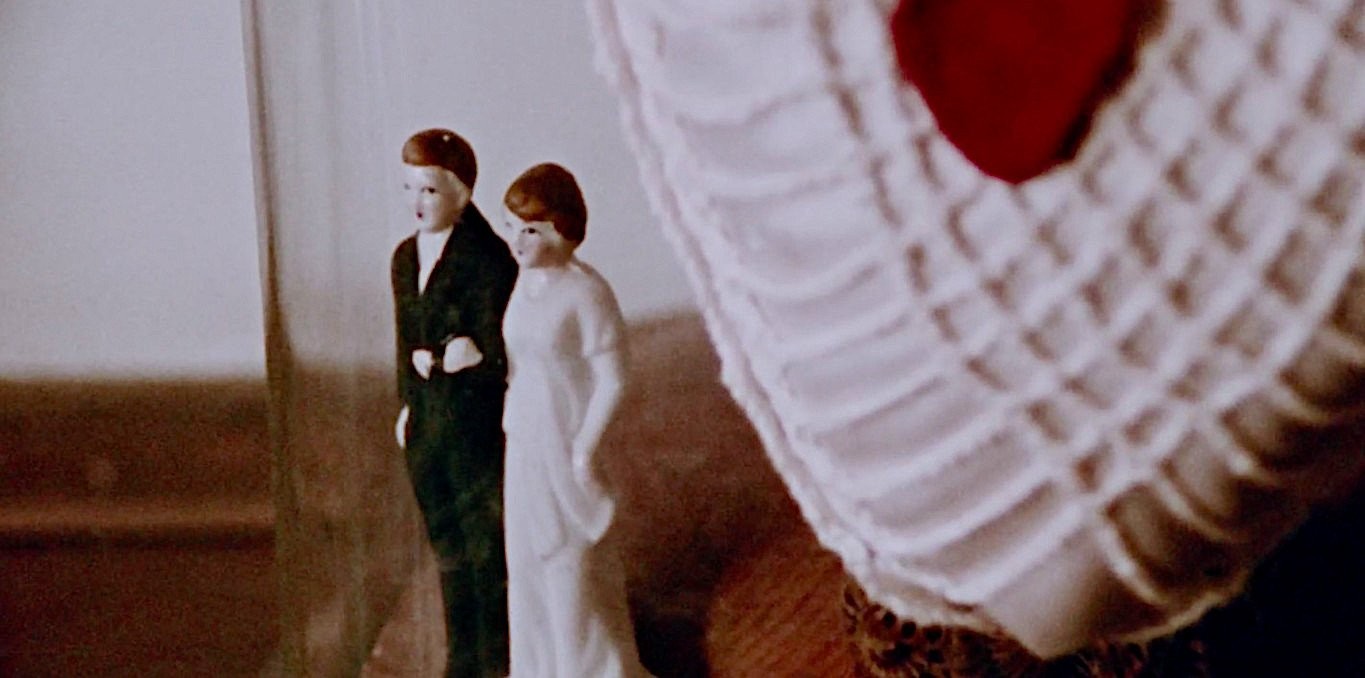J'me marie, j'me marie pas

What value, whether radiant or destructive, does love hold in women's lives? Does marriage enable them to realize their full potential? Can motherhood be separated from a relationship with a man, or is it a choice to be refused? To shed light on these questions and many others, four women in search of their liberation, belonging to the generation of 28-30-year-olds in the early 1970s, express themselves freely. These portraits of women reveal, beyond the traditional patterns of life, numerous possible modes of relationships.
| Directors | Mireille Dansereau, Mireille Dansereau |
| Actors | Maude Trottier, Maude Trottier, Rachel Samson, Rachel Samson |
| Share on |
After several months of shooting uninspiring portraits as part of the En tant que femmes series initiated by Anne Claire Poirier at the NFB, Mireille Dansereau decided to turn to her friends, exploring their concerns about romantic relationships, contraception, creation, and the decision to have children. In J’me marie, j’me marie pas, Francine Larivée (artist and creator of La chambre nuptiale [1976]), Linda Gaboriau (translator and dramaturgical advisor), Jocelyne Lepage (journalist), and Tanya Mackay (filmmaker) form a quadriptych of women in their late twenties and early thirties. Vignettes of their lives unfold, offering a conversational insight into their evolving reflections on identity, relationship dynamics, and their varied parental configurations (single parenting, childless, in heterosexual co-parenting), in differentiation or correspondence with traditional roles and the discourses conveyed by their parents.
Not even a decade after the end of the marital obedience requirement in the Civil Code, three years after the decriminalization of contraception, and well before same-sex marriage (2004) and civil unions in Quebec (2002), Dansereau, as an attentive interviewer present in the frame, heart-to-heart, manages to bring forth the voices of embodied women—authentic voices at times liberated, at times uncertain or untamed—whose resonance still echoes today.
Rachel Samson
Animator, author and programmer

-

Français
1h22
Language: Français
- Année 1973
- Pays Quebec
- Durée 82
- Producteur ONF / NFB
- Langue French
- Résumé court What value does love have in womens' lives? Can marriage and motherhood be rebuffed? Are reflections from the 1970s still current?
- Description revue <p>En complément, consultez le dossier spécial consacré à la cinéaste Mireille Dansereau publié chez <em>Hors champ.</em></p> <p> </p> <p style="text-align: center;"><em><img alt="" src="https://dhkhp2rgto9nq.cloudfront.net/img/cms/Capture d’écran, le 2024-02-06 à 23.43.30.png" style="height: 164px; width: 200px;" /></em></p>
- Lien revue https://horschamp.qc.ca/article/sommaire-vu-pas-vue
- Texte bouton revue Bonne lecture!
After several months of shooting uninspiring portraits as part of the En tant que femmes series initiated by Anne Claire Poirier at the NFB, Mireille Dansereau decided to turn to her friends, exploring their concerns about romantic relationships, contraception, creation, and the decision to have children. In J’me marie, j’me marie pas, Francine Larivée (artist and creator of La chambre nuptiale [1976]), Linda Gaboriau (translator and dramaturgical advisor), Jocelyne Lepage (journalist), and Tanya Mackay (filmmaker) form a quadriptych of women in their late twenties and early thirties. Vignettes of their lives unfold, offering a conversational insight into their evolving reflections on identity, relationship dynamics, and their varied parental configurations (single parenting, childless, in heterosexual co-parenting), in differentiation or correspondence with traditional roles and the discourses conveyed by their parents.
Not even a decade after the end of the marital obedience requirement in the Civil Code, three years after the decriminalization of contraception, and well before same-sex marriage (2004) and civil unions in Quebec (2002), Dansereau, as an attentive interviewer present in the frame, heart-to-heart, manages to bring forth the voices of embodied women—authentic voices at times liberated, at times uncertain or untamed—whose resonance still echoes today.
Rachel Samson
Animator, author and programmer
-

Français
Duration: 1h22Language: Français1h22
- Année 1973
- Pays Quebec
- Durée 82
- Producteur ONF / NFB
- Langue French
- Résumé court What value does love have in womens' lives? Can marriage and motherhood be rebuffed? Are reflections from the 1970s still current?
- Description revue <p>En complément, consultez le dossier spécial consacré à la cinéaste Mireille Dansereau publié chez <em>Hors champ.</em></p> <p> </p> <p style="text-align: center;"><em><img alt="" src="https://dhkhp2rgto9nq.cloudfront.net/img/cms/Capture d’écran, le 2024-02-06 à 23.43.30.png" style="height: 164px; width: 200px;" /></em></p>
- Lien revue https://horschamp.qc.ca/article/sommaire-vu-pas-vue
- Texte bouton revue Bonne lecture!
